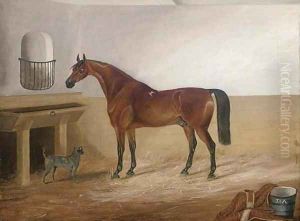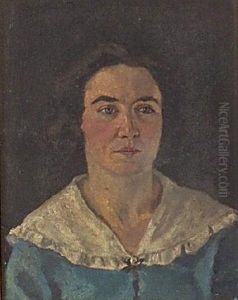Thomas Pain Paintings
Thomas Paine was not an artist in the conventional sense of a painter or sculptor, but rather an influential writer and political activist who had a profound impact on the political landscapes of the late 18th century. Born on January 29, 1737, in Thetford, England, Paine was the son of a Quaker father and an Anglican mother. He received a basic education but was largely self-taught after he left school at the age of 13.
In his early years, Paine worked in a variety of jobs, including as an apprentice in his father's corset-making business, a privateer, a tax collector, and a schoolteacher. His first foray into political writing came in 1772, when he published 'The Case of the Officers of Excise,' advocating for better pay and conditions for excise officers in England. This pamphlet failed to achieve its goals, but it did help Paine make important contacts that would later influence his decision to immigrate to America in 1774.
Upon arriving in America, with the help of Benjamin Franklin whom he met in London, Paine quickly became involved in the colonial cause against British rule. In January 1776, he published his most famous work, 'Common Sense,' a pamphlet that argued for American independence from Britain and the establishment of a democratic republic. 'Common Sense' was widely read and had a significant influence on public opinion and the Declaration of Independence.
Paine went on to serve as a volunteer aide-de-camp to General Nathanael Greene during the American Revolutionary War. His series of pamphlets, 'The American Crisis,' were written during the war to inspire the troops and the general public. The opening line of the first pamphlet, 'These are the times that try men's souls,' has become iconic.
After the war, Paine returned to England and continued his political activism, publishing 'The Rights of Man' in 1791 and 1792, defending the French Revolution and arguing for political rights and equality. His views led to his being labeled an outlaw in England, and he fled to France, where he was later imprisoned during the Reign of Terror for not endorsing the execution of Louis XVI.
Paine spent his final years in the United States, where he wrote several more works but also faced significant criticism and ostracization due to his religious views expressed in 'The Age of Reason,' which criticized organized religion. He died on June 8, 1809, in New York City. Despite the controversies he faced, Thomas Paine's writings remain a seminal force in the development of modern republican and democratic principles.


